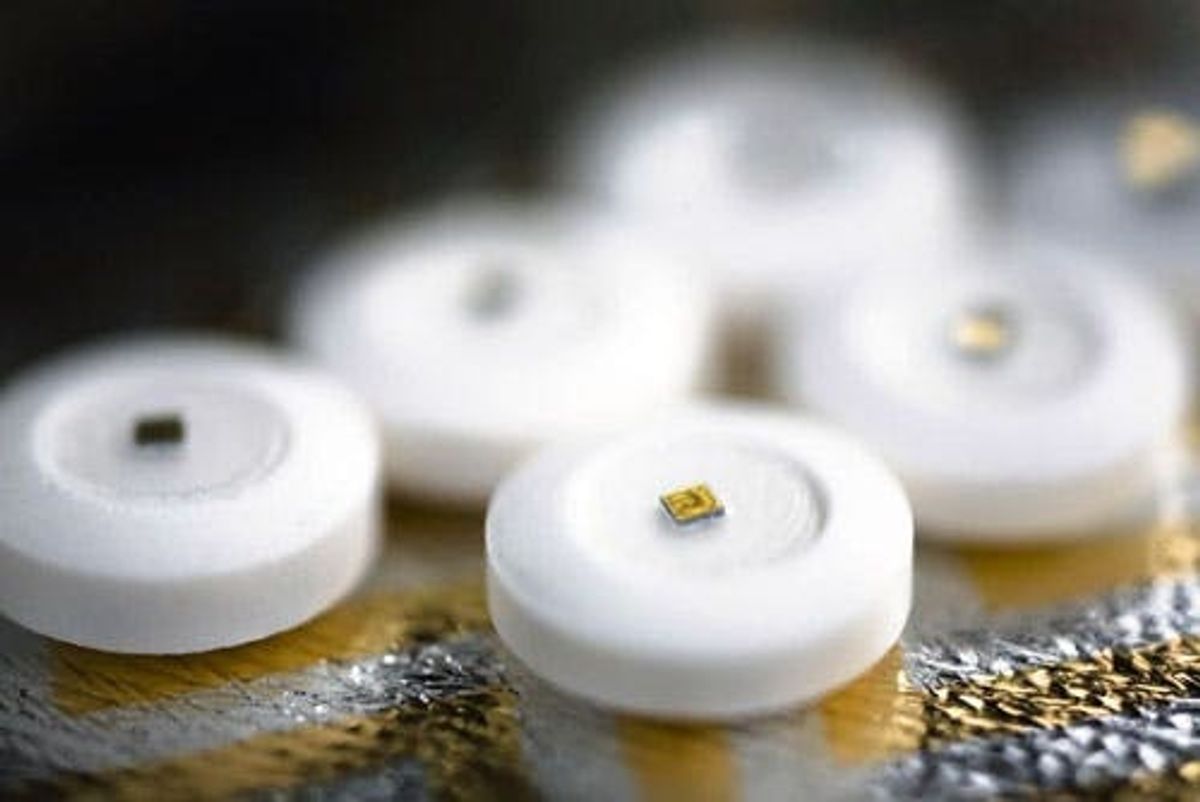We've all been there. The weekend was simply too fun or the day at work totally got away from you, and you forgot to take your daily medication. No matter how many times you set that iPhone alarm, you always seem to miss it. Well, forgetful folks, your days of missing crucial doses are behind […]
Pills That Text You When You Forget to Take Them

We've all been there. The weekend was simply too fun or the day at work totally got away from you, and you forgot to take your daily medication. No matter how many times you set that iPhone alarm, you always seem to miss it. Well, forgetful folks, your days of missing crucial doses are behind you thanks to… The Cyberpill.

Developed by Proteus BioMed and debuting this September in the U.K., these "ingestible event monitors" (IEM) are harmless sugar pills with a microchip implanted inside taken at the same time as your daily medication. The tools involved are an adhesive sensor patch, software for your smartphone, and the pill.

Once the pill is in your system, your stomach acids send a low-power electrical signal to the adhesive sensor patch placed on your body. The patch records the date and time you took the pill, and adds in helpful additional data such as heart rate, physical activity, and respiratory rate. Then, if you forget your pill, your phone will text you (and your doc) to remind you to take it. Once you've taken it, the alert will go away and it's smooth sailing for the rest of the day.
In addition to monitoring how often you take medication, the chip will give your doctor immediate feedback on how a specific drug is performing and how your body is reacting to that drug. No more waiting to "see what happens" for longer than absolutely necessary when you try out new medications.

Even if you aren't forgetful, the idea that you can monitor what's going on inside your body through your phone is pretty amazing. Each day, the IEM chip will generate personal health care stats, allowing you to run basic analytics through your smartphone.
Combine this with the Nike Fuel Band and you just might be able to manage your entire body through your phone. Kind of crazy, right?
Critics of such technology worry that turning your doctor into a Big Brother character will cause discord among patients. There's also the thought that such a chip could be hacked into by people other than doctors, who would potentially be able to track your location and really get Big Brother-y in your grill. Proteus assures the medical community that this is not a possibility, and the value in having patients take medicine correctly far outweighs the risks.



















